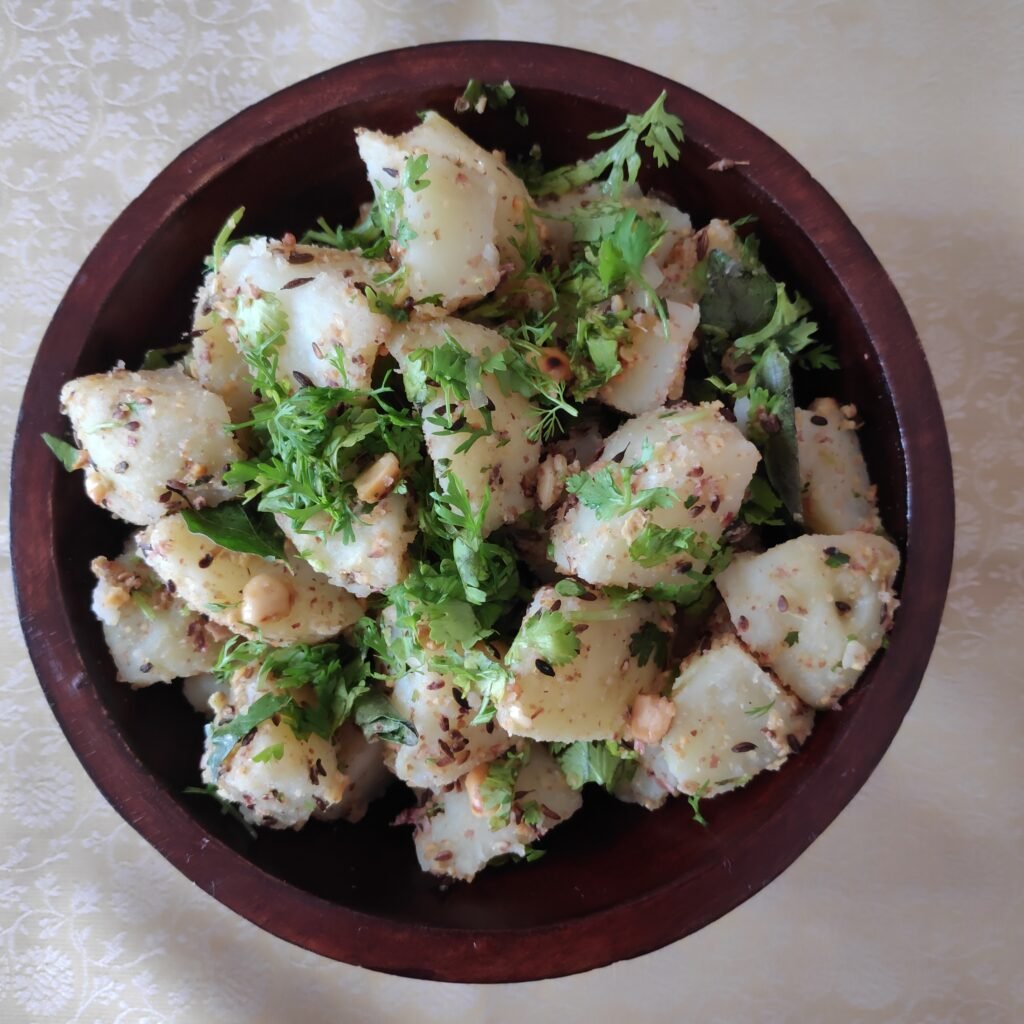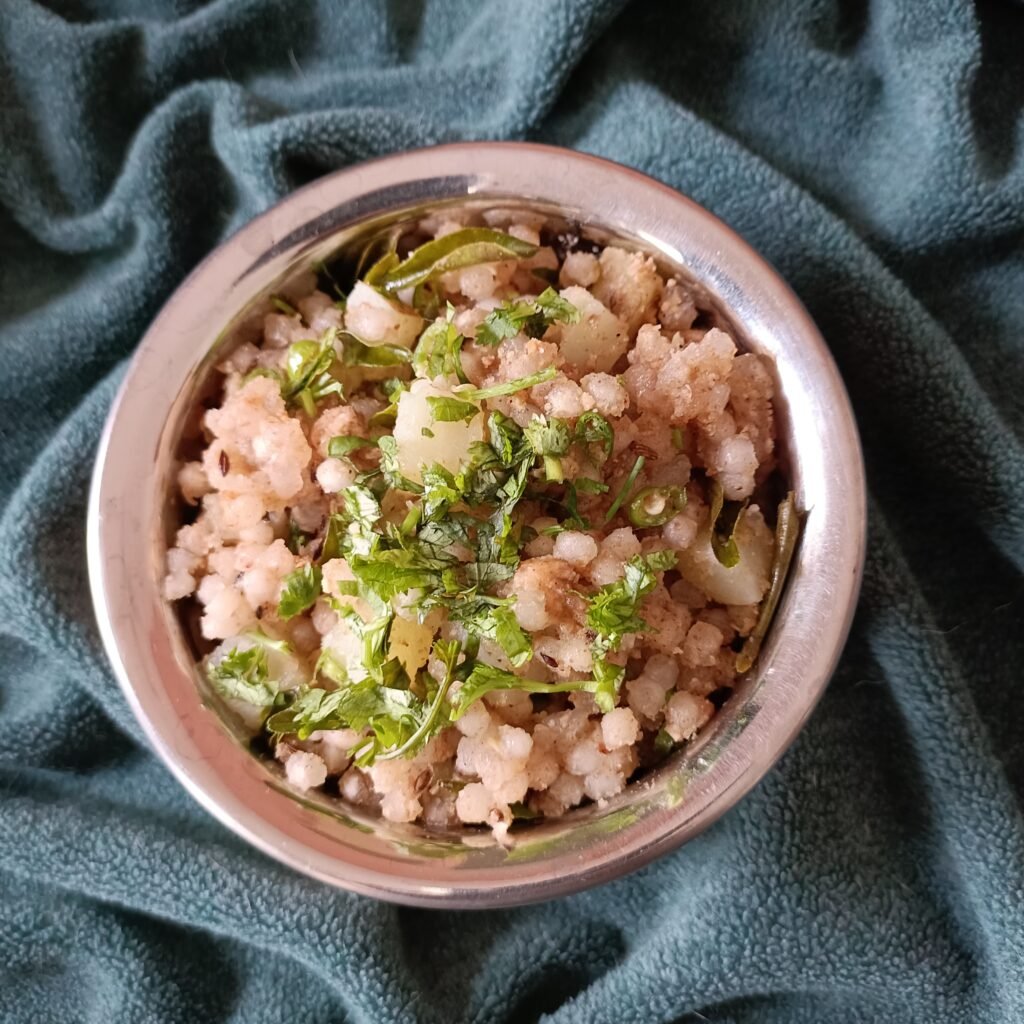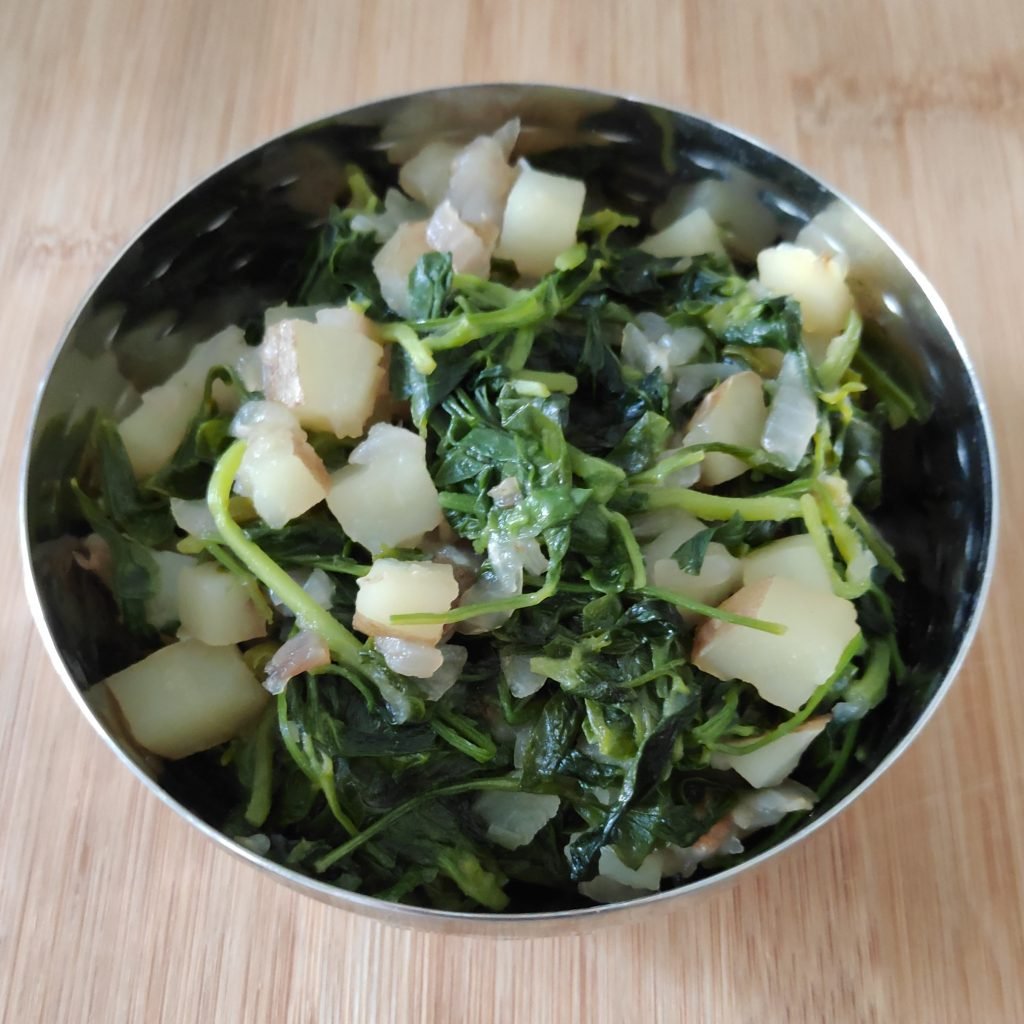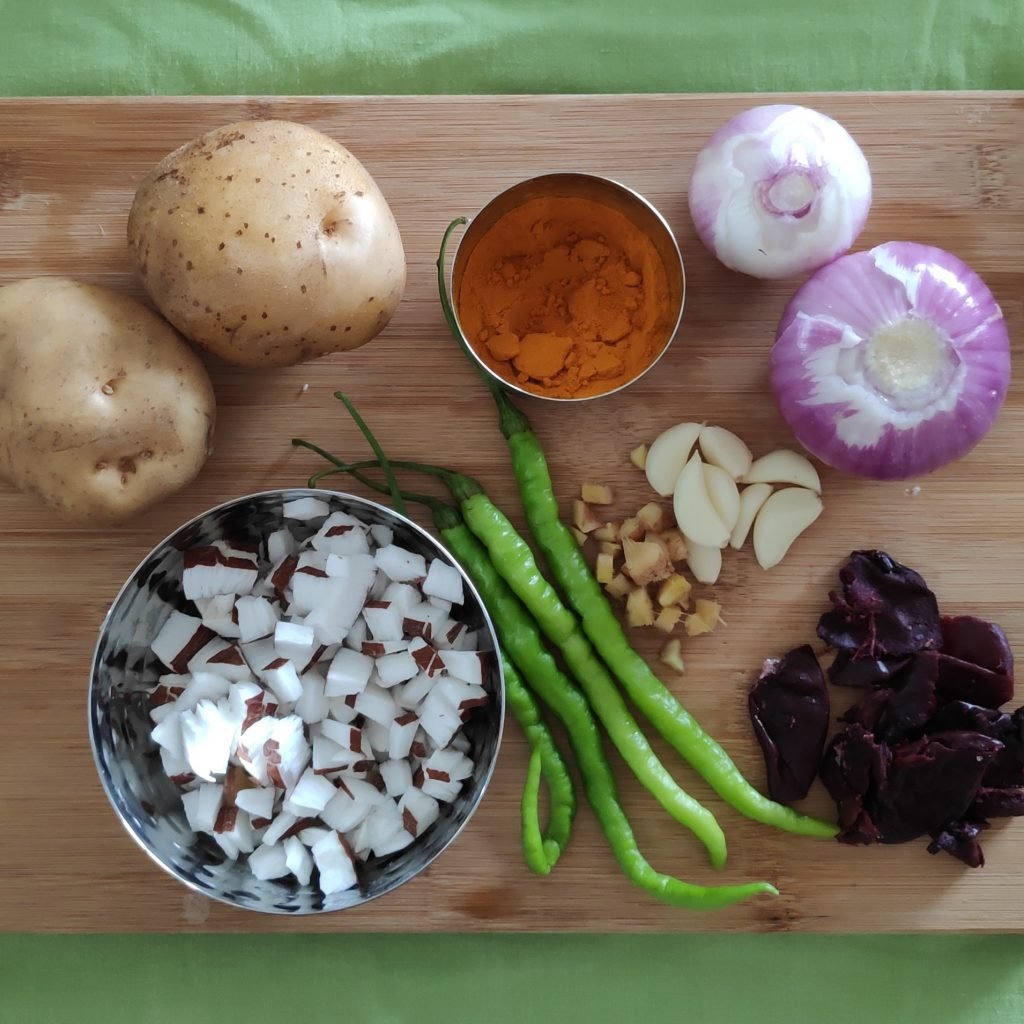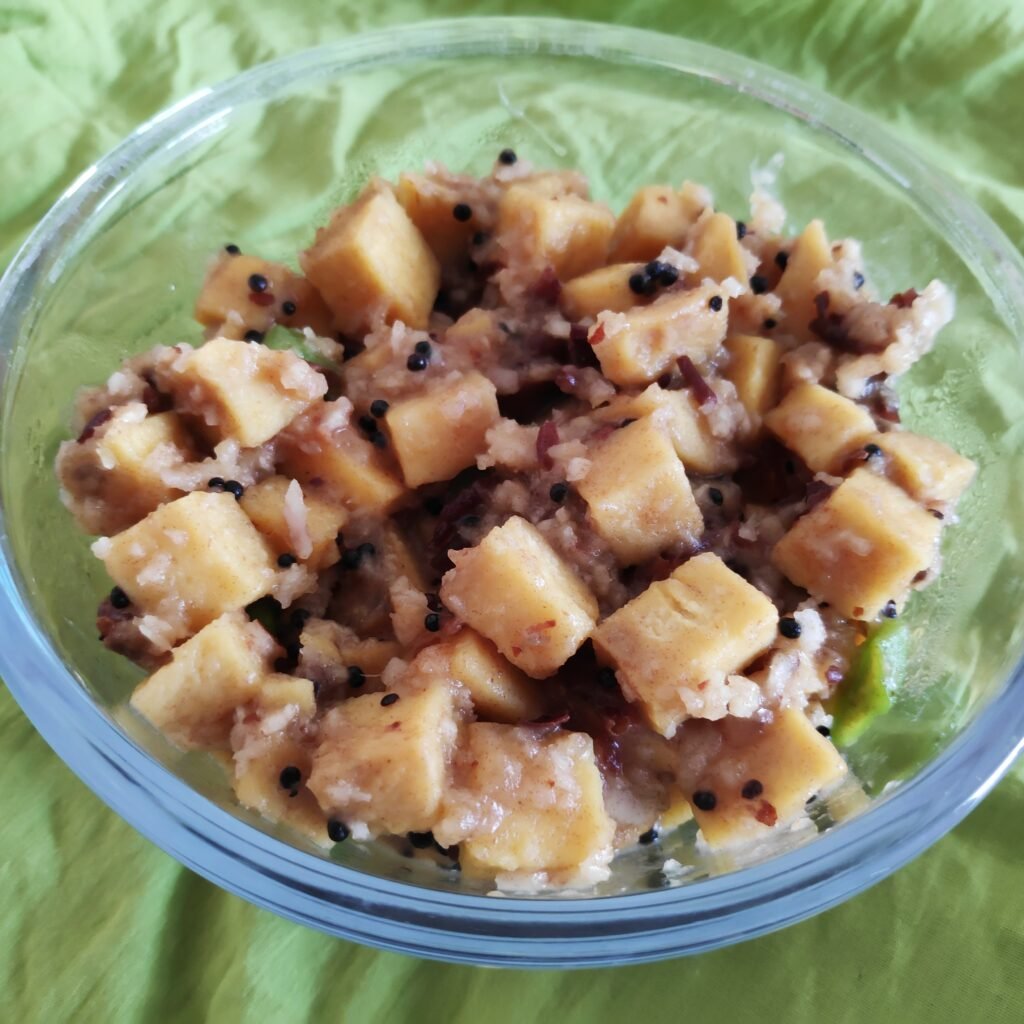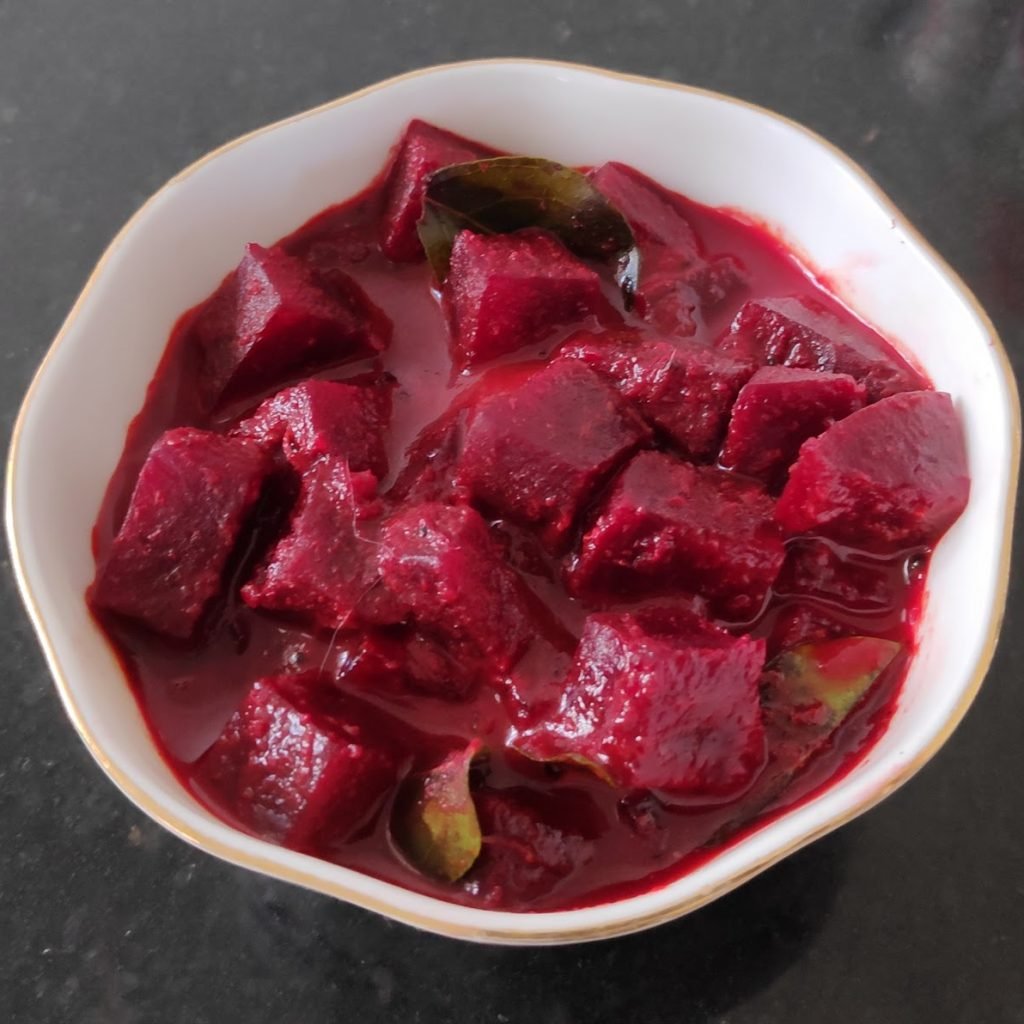Aloo Sabji with Saunf (Potato Sabji with Fennel Seeds)
Potatoes are rich in carbohydrates and fibre and so very satiating. They have a wonderful variety of nutrients including proteins and have been used as an important ingredient in areas where people lack food and nutrition. Most of the nutrition is contained in the skin so keep it on to ensure you get the most benefit out of them. Moreover, the skin is also alkaline in nature helping keep the pH level in your body in a better condition. Apart from the fibre, especially in the skin, potatoes contain vitamins C and B6, niacin and folate, and minerals like potassium, manganese, magnesium and phosphorous, all of which help in maintaining sugar levels. They also contain compounds like flavonoids, carotenoids and phenolic acids, which are antioxidants that help to fight free radicals that can lead to lifestyle diseases. With all these benefits all we need to be careful about is not to add oil to our potato dishes as that ruins all the goodness that potatoes can give us.

